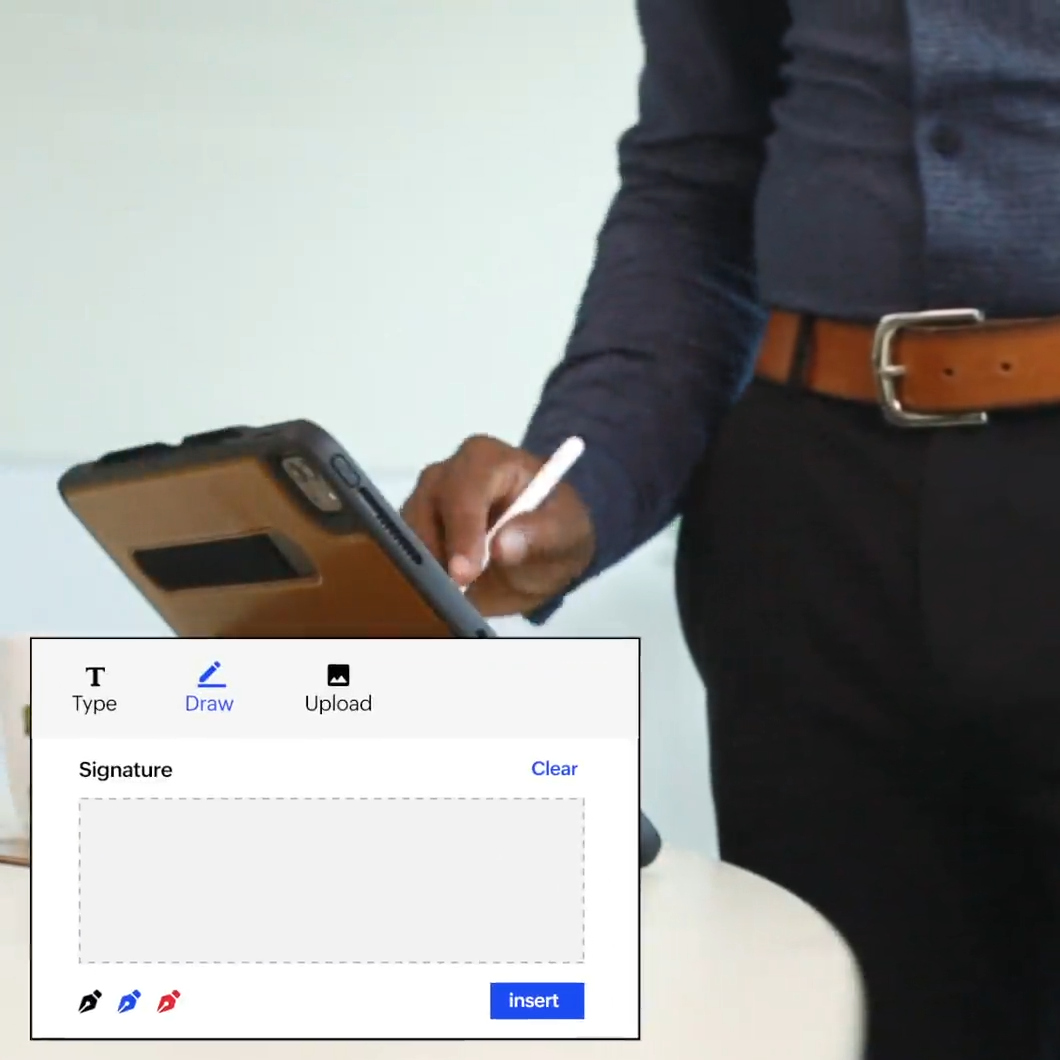Navigating the ever-changing landscape of real estate means embracing new solutions that make buying and selling easier for everyone involved. Digital closings are gaining traction as we evolve into a more remote and tech-driven world. While some states have prohibited electronic closings in the past, they are becoming more commonplace daily.
So, what is a digital closing, and why is it becoming so important? I’ll break down the essentials—what digital closings entail, how they work, and how you can use them to enhance your business.
What Are Digital Closings & Why They Matter

A digital closing, sometimes called an e-closing, is the process of completing a real estate transaction electronically without the need for a traditional in-person meeting. Instead of sitting around a table with a stack of papers, the entire closing process can be done online, from initiating the first substantial contact with leads to signing documents and transferring funds. This shift to digital closings is more than just a trend; it’s a response to the need for faster, easier, and safer real estate transactions.
Here’s why digital closings matter:
- Convenience: Complete the closing process from anywhere, eliminating the need to coordinate schedules for in-person meetings.
- Accuracy: Reduced risk of errors that can occur with manual document handling.
- Security: Enhanced protection with secure document storage and encryption features.
- Time savings: Digital closings can significantly reduce the time it takes to complete a transaction. Without trying to gather everyone in one place, the process can be completed at a pace that works for everyone involved.
- Client satisfaction: Offering digital closings can enhance your clients’ experience, making the process smoother and less stressful for them.
- Reduced paperwork: Digital closings eliminate the need for printing, signing, and storing large amounts of paper, making the process more environmentally friendly and less cumbersome.
Digital closings represent a fundamental shift in how real estate deals are completed. With everything handled electronically, there’s less risk of errors that can occur with manual document handling. Plus, digital platforms often include features like secure document storage and encryption, providing peace of mind that sensitive information is protected.
How to Incorporate Digital Closings Into Your Business
Integrating digital closings into your real estate business is easier than you might think. Transitioning to digital closings can help modernize your operations and keep you competitive, especially with the rise of millennial and Gen Z buyers.
Let’s look at a few ways you can start adding digital closings into your business:
- Choose the right platform: Select a digital closing platform with secure e-signatures, easy document sharing, and strong support. Look for one that integrates with your existing tools.
- Train your team: Ensure your team is comfortable with the digital closing process by providing necessary training or tutorials.
- Update your workflow: Adjust your processes to incorporate digital tools, such as switching from mailing documents to sending them for e-signature.
- Communicate with clients: Ensure clients understand the digital closing process, explaining benefits and guiding them through each step, from submitting an offer to signing closing documents.
- Evaluate and adjust: Continuously review the process, gather feedback, and make necessary improvements.
By taking these steps, you’ll be able to smoothly bring digital closings into your business, making it easier to serve your clients efficiently while staying on top of the latest trends. This change doesn’t just modernize your operations—it also helps you stand out as a forward-thinking professional in real estate.
Traditional vs Digital Closings
When it comes to closing a real estate deal, the choice between traditional and digital methods can make a big difference in the experience for both you and your clients. While traditional closings have long been the standard, digital closings offer several advantages, particularly when it comes to coordinating schedules among multiple parties.
Here are some key differences:
| Location | In-person meeting required | Can be completed remotely |
| Paperwork | Physical paperwork needs to be signed | Electronic documents with e-signatures |
| Time Commitment | Often takes longer due to scheduling and travel | Quicker; no travel or in-person meetings needed |
| Client Experience | Can be stressful and overwhelming to schedule | More convenient and flexible for clients |
| Security | Risk of lost or misplaced documents | Enhanced security with encrypted digital files |
Pro Tip: Not everyone will be comfortable with digital closings. Hybrid closings offer flexibility by combining digital convenience with in-person options, making it easier to meet everyone’s needs. This format is handy when there are multiple parties to a transaction.
Preparing Clients for Digital Closings
It’s crucial to prepare your clients for a digital closing and what they should expect. This is still a new concept to many, just like it would be for first-time homebuyers. Start by explaining what a digital closing is and highlight the convenience, time savings, and security benefits. Walk them through the process from accessing documents online to using e-signatures. Let them know you can answer any questions and provide a simple guide if needed.
With the proper preparation, a digital closing can be smooth and stress-free, leaving your clients thankful for using you as their agent. After such an easy process, they’ll appreciate your thoughtful closing gift even more—it’s the perfect final touch to a seamless experience!
Tips & Tools for Effective Digital Closings
Now that you know what a digital closing is and how to use it in your business, you’ll need to ensure that your team can provide a smooth digital closing process.
Here are some practical tips to help you succeed:
-
Choose the right platform: Select a digital closing platform that is user-friendly and secure. Look for features like e-signatures, document tracking, and easy client access. It’s more likely that the title company or closing attorney will conduct these closings, but be sure you’re prepared with the right tools to handle closings if needed.
-
Test the process: Before going live, run a test closing to familiarize yourself with the platform and identify any potential issues. The more you use the platform, the easier it will become.
-
Keep clients informed: Regularly update your clients on what to expect during the digital closing. Clear communication can prevent confusion and reduce last-minute hiccups.
-
Ensure reliable internet access: A stable internet connection is crucial for a seamless digital closing. Ensure both you and your clients have access to a strong connection.
-
Use digital checklists: To stay organized, use a digital checklist to track each step of the closing process. This helps ensure nothing is overlooked, right down to thank you cards after closing.

If you’re looking for a tool that makes digital closings easier, Zoho is a great option. It’s got everything you need in one place—CRM features to track clients, built-in e-signature capabilities, and secure document management. With Zoho, you can handle the entire closing process smoothly, keeping everything organized and efficient. Plus, it’s super user-friendly and reliable, making it perfect for real estate pros who want to step up their digital game without the hassle.
Pros & Cons of Digital Closings
Digital closings offer a range of benefits, but they also come with some challenges. Understanding the pros and cons can help you decide if this approach is right for your business and clients.
By weighing these pros and cons, you can better assess how digital closings fit into your workflow and determine the best approach for your business and clients.
The Future of Digital Closings In Real Estate
The future of digital closings in real estate is bright, with ongoing advancements making the process more efficient and accessible. As technology evolves, digital closings are likely to become the norm. AI and machine learning are increasingly automating tasks like document review, while blockchain is enhancing security and transparency.
With more states adopting laws that support digital transactions, the expansion of digital closings is set to continue. As clients demand more convenience and speed, embracing digital closings will help real estate professionals stay ahead and meet these expectations.
Pro Tip: After a successful closing, be sure to capture the moment with your clients. A great way to do this is by taking photos together with a “Sold” sign—it’s a memorable way to celebrate the milestone and create lasting impressions!
FAQs
How secure are digital closings compared to traditional closings?
Security is a big deal, especially when dealing with sensitive real estate transactions. The good news is digital closings offer more security than traditional methods. Most digital platforms use advanced encryption and secure document handling to keep everything safe. However, not all platforms are created equal, so choosing one with a solid reputation is crucial. Following best practices—like using strong passwords and being cautious about sharing information—will further protect your clients’ data and ensure the closing goes off without a hitch.
Are digital closings legally recognized in all states?
Not quite! While digital closings are becoming increasingly popular, the legal landscape can vary from state to state. Some states fully recognize digital closings, including electronic signatures and remote notarization, while others are still catching up. Before diving into a digital closing, double-checking your local regulations is a good idea. This way, you’ll know whether you’re in the clear to proceed digitally or if there are additional steps you need to take to comply with state laws.
What happens if a technical issue occurs during a digital closing?
We’ve all been there—right in the middle of something important, and suddenly, the internet goes down or the platform glitches. If a technical issue pops up during a digital closing, it can be frustrating, but it’s not the end of the world. The key is to have a backup plan in place. Whether that’s having alternate communication methods ready (like a quick phone call or text) or scheduling a follow-up session, being prepared can help you handle any hiccups smoothly. It’s all about staying calm and keeping the lines of communication open.
Bringing It All Together
The future of digital closings is bright, with ongoing innovations set to make the process even more secure, efficient, and widespread. By staying informed about these developments, real estate professionals can remain ahead of the curve and continue to provide top-notch service in an increasingly digital landscape.












Add comment